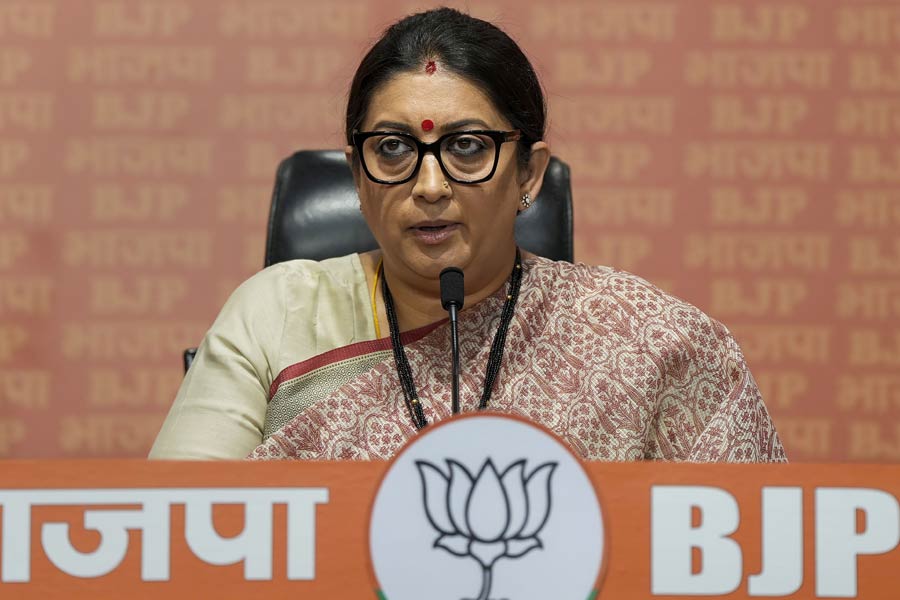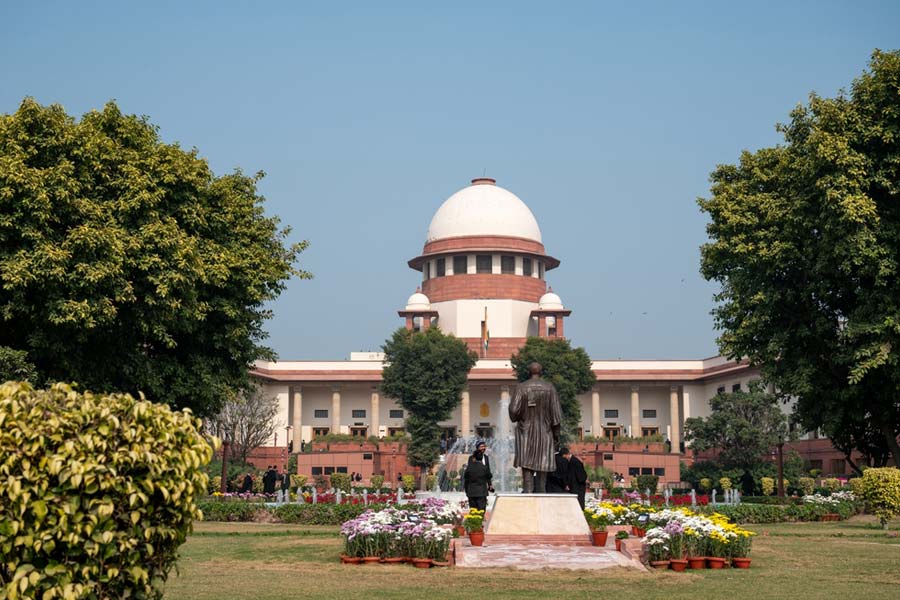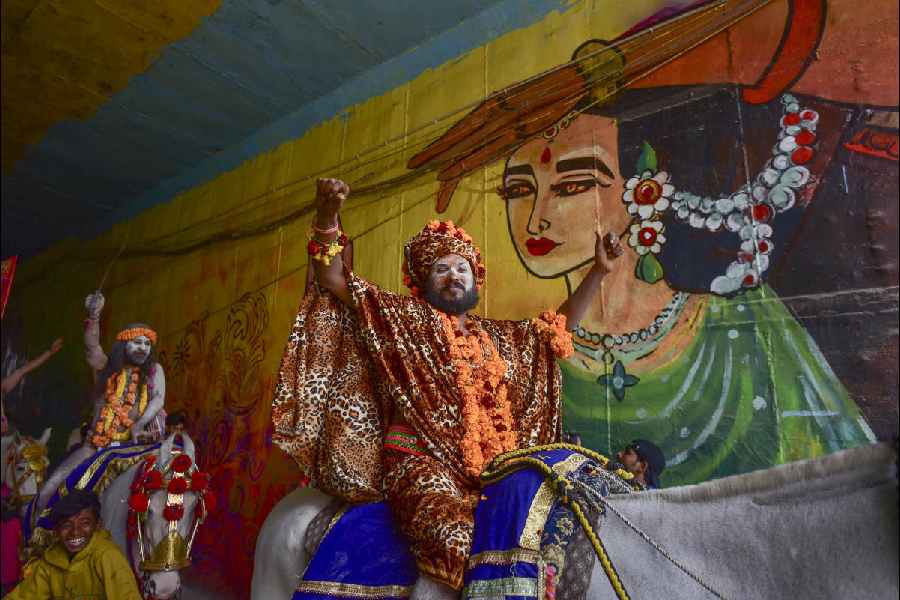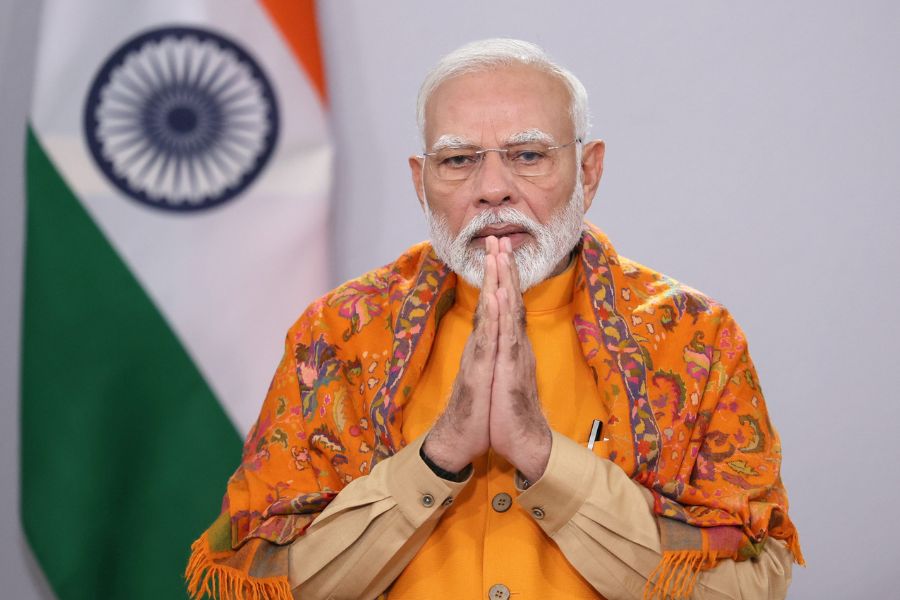Strong contender
Smriti Irani, a popular face since Narendra Modi swept to power in Delhi in 2014, has gone out of sight since she lost the Lok Sabha elections. She was defeated by Kishori Lal Sharma, who used to be a backroom manager of the Nehru-Gandhi family. Not known to be out of the limelight for long, the actor-turned-politician is apparently desperate for rehabilitation. With Delhi headed for polls, there is a strong buzz about her being made the chief ministerial face. The Bharatiya Janata Party lacks a credible face to take on Arvind Kejriwal. The Aam Aadmi Party boss has been trying to exploit this handicap of the BJP. He has been slamming the BJP for having no face, no agenda and no vision for Delhi. The BJP leadership, though, is in a dilemma. While Irani could be a strong match for Kejriwal, many fear that declaring her as the CM face could be counterproductive. There is disunity in the Delhi BJP and the move could boomerang. The BJP had won all the seven Lok Sabha seats in Delhi and party leaders said that many of the winners are eyeing the top post. However, Irani is apparently so keen that she is even ready to take the risk of contesting the assembly elections.
Opportunists galore
While students in Bihar are agitating against the state public service commission and seeking cancellation of the civil services prelims, Opposition leaders are vying to woo them and drawing flak in the process. When the police lathi-charged and water-cannoned one of the students’ demonstrations, the Rashtriya Janata Dal leader, Tejashwi Yadav, was slammed for his video message from a cosy sofa at his residence on a cold evening instead of joining the protestors. The Jan Suraaj Party leader, Prashant Kishor, was severely criticised for leaving the agitators in the lurch at the whiff of the police’s plans to use force. The student organisations affiliated to Left parties were criticised for scuttling the moves of the non-Left leaders trying to show solidarity with the protesting youths.
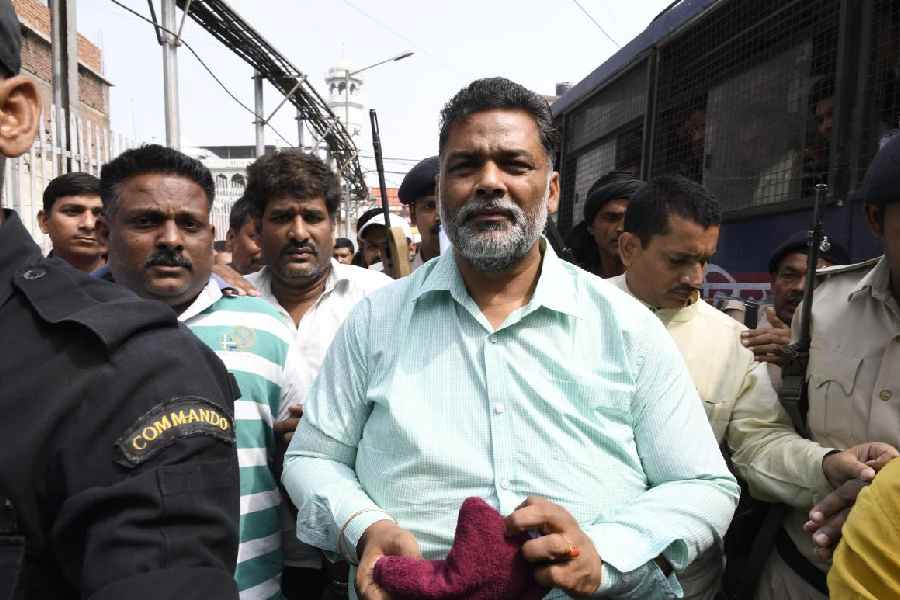
Pappu Yadav - MP - being produced - Railway Court - Patna Junction.
The member of Parliament from Purnia, Pappu Yadav, was denounced for attempting to hijack the protests and indulging in one-upmanship. The Congress has been condemned for making noises in favour of the agitators from such a distance that it was barely audible. “They all are thinking of the assembly elections that will be held later this year, and are trying to bake their own bread in this fire that is burning among the youth,” one of the candidates involved in the agitation said.
Harsh truths
The chief minister of Assam, Himanta Biswa Sarma, used his New Year media interaction to urge print and electronic media to reflect on the positive changes taking place in the state instead of dwelling on the negatives of the past. He also flagged the growing influence of social media. Some journalists felt that Sarma’s sermon might have been triggered by the launch of the book, BJPk Kio Vote Nidibo? ( Why will you not cast your vote for BJP? ), by the senior journalist, Nitumoni Saikia. An influential media baron from the state, Jayanta Baruah, while launching the book, articulated the shortcomings of the incumbent government despite many people backing the BJP in 2016. He was critical of the government’s focus on building flyovers instead of providing basic facilities and how it has “destroyed” the rural economy.
On New Year’s Eve, the Assam PCC president added to the debate. Dwelling on the book, Bhupen Kumar Borah observed the change in the mindset of the state’s intellectuals towards the ruling BJP. “If it has taken the thinking class eight years to realise why one should not vote [for] the BJP, it may take ten years for this realisation to dawn on the general public. It is a good sign,” Borah rubbed it in. Dissecting Sarma’s message, a journalist said that the media’s job is to stress accountability. The rest is public relations.
Changed tune
In the wake of the shock defeat of the Biju Janata Dal, the former CM, Naveen Patnaik, who ruled Odisha uninterrupted for 24 years, has joined the Opposition’s chorus for a return to the paper ballot. On the foundation day of the BJD, Patnaik said that his party was in favour of holding polls through paper ballot. However, he desisted from directly questioning the efficacy of electronic voting machines. Earlier, on December 23, 2024, the BJD had submitted a memorandum to the Election Commission of India, highlighting significant disparities between the polling day figures and the final EVM count, with variations ranging from 15% to 30% in the simultaneously held Lok Sabha and assembly polls in the state in 2024. “These variations raise questions about the integrity of the whole process,” the party stated.

